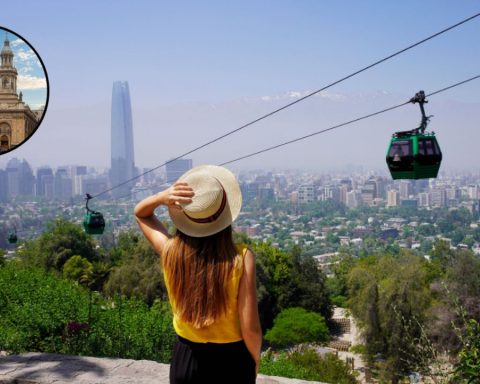The Constitution Commission of the Senate approved in general the constitutional reform that arose after the “Agreement for Chile” —signed by the political forces with parliamentary representation— and which seeks to enable a new constituent process.
The president of the instance, Senator Matías Walker (Democrats), said that the intention is to dispatch the text from the Chamber during the next week.
You may also like:
The Minister of the General Secretariat of the Presidency (Segpres), Ana Lya Uriarte, pointed out that the itinerary is clear. Tomorrow, Tuesday, December 27, until 12 noon, there is a deadline to enter instructions. In addition, there will be a session during the afternoon, in order to discuss these indications that will be voted on Wednesday, December 28. “All this, in order to try to carry out a process as agile and fast as possible, so that we can have a constituent process enabled during the year 2023,” said the Secretary of State.
From the Government they entered the request for immediate discussion. However, as this week is district for parliamentarians, there has been no Chamber session and this request has not been taken into account. In any case, the initiative, according to Minister Uriarte, “is being processed with the impulse of the Constitution Commission itself and next week —when the senators from the district week return—, the Chamber will meet to give an account and take the appropriate decision.”
In the session, the possibility of delaying the election of the Constitutional Council for two weeks was discussed, since the agreed May 14 coincides with Mother’s Day, a “very sensitive date for the people and very important for commerce,” as he explained. Senator Walker.
Regarding the itinerary, the head of the Segpres stressed that they have made present the circumstance that the election of constitutional councilors has been set for next May 14. Therefore, “we have put on the table an issue of interest to be reviewed by the Senate.”
“We always said that the deadlines were subordinated to the processing time of the project and the Servel technical report,” said the President of the Senate, Álvaro Elizalde (PS), along with recalling that when the agreement was presented “we were explicit that the itinerary could undergo certain modifications, according to the needs expressed by the Servel and the processing times of the initiative”.
“We are open to defining dates, within the framework of those that have been proposed, a couple of weeks more or less,” added Senator Elizalde.
Regarding the modifications, the PS legislator stressed that “certain points will be clarified, but not to change the agreement.”
“Agreement for Chile”
It is worth mentioning that the Senate began on the afternoon of this Monday, December 26, the discussion of the project that enables the new constituent process, a key reform that must be validated in both houses of Congress.
As Senator Walker previously told the press, it was expected “not to introduce major modifications to the text”, as it is “the result of an agreement (…) and the idea is that if there are modifications that arise from the debate, if it is necessary to make precisions, these arise by mutual agreement”.
The political agreement to give continuity to the constituent process entered as a reform project on Wednesday, December 21, after more than three months of negotiations between the forces with parliamentary representation, an agreement that untied complex knots such as the composition of the drafting body, the participation of experts and their minimum requirements.
It was established, in turn, that the participants in the drafting process (50 members of the elected Constitutional Council, 24 experts and the 14 jurists who will be part of the Admissibility Technical Commission who will act as a kind of arbitrator) be remunerated.
The directors will receive 60 monthly tax units (UTM) -account unit used in the country for paying taxes and fines updated according to inflation- (almost 4,200 dollars), the experts will charge 30 UTM (almost 2,100 dollars), while the lawyers will be paid 10 UTM (almost $2,750) per session, with a maximum of three sessions per month.
On the other hand, it was resolved that a number of seats for indigenous peoples proportional to the total vote obtained at the national level will be reserved and that the minimum margin to be elected will be 1.5% of the votes.
Regarding the pending calendar dates, it was agreed that the elections for constitutional councilors will be on May 14, 2023.
The agreement for a new constituent process was closed on December 13 and was signed by 14 political forces from the Independent Democratic Union (UDI) to the Communist Party.
It establishes that the new body that will draft the Fundamental Law proposal will be called the Constitutional Council and will be made up of 50 people elected by the citizens. At the same time, a committee of experts appointed by Congress (12 by the Senate and 12 by the Chamber of Deputies) will be installed to prepare a preliminary draft that will serve as a basis for the council.
The pact also includes 12 institutional principles that the drafting body must follow and that would prevent a refounding proposal.
On September 4, 62.5% of Chileans rejected the constitutional proposal drawn up by a convention with a progressive majority and made up of independent citizens, without affiliation to political parties.
A few days later, the political forces began negotiations to start a new process because, despite the rejection in the plebiscite, there is a consensus on the need to replace the current Constitution.















